Searching for the best books for therapists? Whether you’re deepening your theoretical understanding, seeking practical skills, or enhancing personal resilience, this curated list serves as your gateway to professional excellence and personal growth. We’ve distilled the essential reads that every therapist should explore to catalyze change in their practice and within themselves. Begin your journey through our expertly chosen selections to empower your therapeutic work.
Key Takeaways
- Essential books for therapists cover a broad range of topics, including foundational knowledge, practical techniques, and personal growth, to promote professional competence and self-improvement.
- Specialized therapeutic approaches, such as trauma-focused therapy, narrative therapy, and group therapy, offer targeted perspectives and techniques that can enhance a therapist’s ability to address specific client needs.
- Building a successful therapy practice goes beyond clinical skills and involves mastering aspects like client engagement, marketing, insurance billing, and offering client-centered resources like self-help books and parenting guides.
Essential Books for Therapists

Every therapist’s inner journey begins with a solid foundation, especially for new therapists. Theoretical knowledge, practical techniques, and personal growth form the bedrock of our profession. They shape our understanding, hone our skills, and foster our personal and professional development. This is why it’s crucial to have a set of essential books that cover these three categories.
But what are these books? Which ones offer the most valuable insights? Which ones are considered the “classics” of our field? Which ones provide the most practical guidance? And more importantly, which ones can help us grow as individuals, as well as professionals? Don’t worry, we have the answers. Let’s dive in.
Foundational Knowledge
Foundational knowledge forms the backbone of our understanding of therapy. It provides us with crucial insights into human behavior, mental processes, and therapeutic techniques. It’s the theoretical base upon which we build our practice. And it’s in this category that we find some of the most influential books in our field.
Books such as ‘The Body Keeps the Score’ by Bessel van der Kolk, ‘Love’s Executioner’ by Irving D. Yalom, and ‘The Making of a Therapist’ by Louis Cozolino are considered classics. They offer a comprehensive understanding of psychotherapy and have significantly influenced the therapeutic process.
On the other hand, books like:
- ‘Beginning Mindfulness: Learning the Way of Awareness’
- ‘The Shyness and Social Anxiety Workbook’
- ‘A Guide to Possibility Land: Fifty-One Methods for Doing Brief, Respectful Therapy’
Our open letter aims to provide contemporary insights and address key concerns like childhood trauma.
For those at the start of their careers, ‘First Steps in Counseling: A Students’ Companion for Introductory Courses’ and ‘Learning to Counsel: How to Develop the Skills, Insight, and Knowledge to Counsel Others’ offer extensive foundational knowledge.
Practical Techniques
Once we have the foundational knowledge, it’s time to put it into practice. This is where books focusing on practical techniques come in. These books offer real-life applications of theoretical concepts, providing us with tools and techniques to enhance our therapeutic process.
Among the recommended books in this category, we find ‘Love’s Executioner’ by Irving D. Yalom, ‘The First Kiss’ by Daryl Chow, and ‘The Making of a Therapist’ by Louis Cozolino. These books, written by renowned therapists, offer invaluable guidance for improving our skills and techniques.
For those interested in Cognitive Behavioral Therapy, ‘Cognitive Behavioral Therapy: Basics and Beyond’ by Judith Beck and ‘Feeling Good Handbook’ by David Burns are top choices. And for those looking to enhance their abilities in motivational interviewing, ‘The Harm Reduction Workbook for Addiction: Motivational Interviewing Skills to Create a Personalized Recovery Plan and Make Lasting Change’ and ‘Motivational Interviewing: Helping People Change’ by William Miller and Stephen Rollnick offer key insights.
Personal Growth
As therapists, we often focus on the growth and development of our clients. But we mustn’t forget about our own personal growth. After all, our mental and emotional well-being plays a crucial role in our ability to help others. Therefore, it’s crucial to include books focusing on personal growth in our reading list.
Books such as ‘Atomic Habits: An Easy & Proven Way to Build Good Habits & Break Bad Ones,’ ‘The Highly Sensitive Person,’ and ‘Man’s Search for Meaning’ offer valuable insights into self-improvement and personal well-being. They help us understand ourselves better, enhance our emotional intelligence, and aid in our self-discovery journey. They also address common concerns and challenges we face in our personal and professional lives, providing us with strategies to tackle them effectively.
Specialized Approaches in Therapy

As we advance in our career, we might feel the need to specialize in certain therapeutic approaches. These approaches allow us to cater to specific client needs and enhance our effectiveness as therapists. Whether it’s trauma-focused therapy, narrative therapy, or group therapy, each approach offers unique perspectives and techniques that can enrich our practice.
Books like:
- ‘The Boy Who Was Raised as a Dog’
- ‘The Body Keeps the Score’
- ‘Waking the Tiger’
- ‘Narrative Means to Therapeutic Ends’
offer crucial insights into these specialized approaches. These books, written by leading voices in the field, serve as excellent resources for understanding and addressing specific therapeutic needs.
Trauma-Focused Therapy
Trauma-focused therapy is a specialized approach that requires a deep understanding of trauma and its effects. It’s a complex field, but luckily, we have some excellent books to guide us through it.
Books like:
- ‘The Body Keeps the Score’ by Bessel van der Kolk
- ‘101 Trauma-Informed Interventions’ by Linda Curran
- ‘The Boy Who Was Raised as a Dog’
- ‘Waking the Tiger’
offer in-depth insights into trauma-focused therapy. These books, endorsed by professionals in the field, provide us with techniques to understand and address trauma in our clients. They also introduce us to the work of key figures in the field, such as Bessel Van Der Kolk, Mark Wolynn, and Judith Lewis Herman.
Narrative Therapy
Narrative therapy is another specialized approach that focuses on the stories people tell about their lives. It’s a respectful and non-blaming method that emphasizes individuals as the authorities in their own lives.
Books like ‘Narrative Means to Therapeutic Ends’ by Michael White and David Epston and ‘Narrative Therapy: Theories of Psychotherapy’ by Stephen Madigan introduce us to the concept of narrative therapy. They offer valuable insights into this approach and show us how to apply it in our practice. Through these books, we can learn to assist our clients in recognizing alternative stories, questioning old beliefs, and creating deeper significance in their lives.
Group Therapy
Finally, group therapy is a specialized approach that focuses on the therapeutic potential of group dynamics. It’s a challenging field, but with the right books, we can master it.
Books like ‘Acting Out: Therapy for Groups’ by Philip Moore and ‘Action Methods In Group Psychotherapy: Practical Aspects’ by Daniel D. Tomasulo provide valuable insights into group therapy techniques. They offer strategies for creating a supportive and effective group environment and include real case studies from group therapy sessions. These books are excellent resources for any therapist interested in facilitating group sessions.
Client-Centered Resources

As therapists, our ultimate goal is to assist our clients in their journey towards better mental health. To do this, we need to offer them resources that they can use outside of our sessions. That’s why it’s important to have a list of client-centered resources, such as self-help books and parenting guides.
These resources empower our clients, allowing them to take control of their own growth and development. They offer practical strategies and insights that clients can apply in their everyday lives. So, what are these resources? Let’s find out.
Self-Help Books
Self-help books are an excellent resource for clients. They offer new perspectives, promote positive thinking, and provide cost-effective self-help resources. They can be a valuable supplement to therapy, fostering motivation and readiness for self-improvement.
Books like:
- ‘When Things Fall Apart’
- ‘The Resilience Workbook’
- ‘Love’s’
- ‘Atomic Habits: An Easy & Proven Way to Build Good Habits & Break Bad Ones’
Therapy books are highly recommended for clients. These books offer transformative potential, presenting strategies to address mental health issues and teaching new life skills. They can greatly enhance the therapeutic work and contribute to clients’ personal development.
Parenting Guides
For clients who are parents, a practical guide like parenting guides can be a valuable resource. These guides offer practical strategies and insights to assist them in navigating the intricate challenges of parenting. They provide support and education that can supplement therapeutic interventions.
Books like:
- ‘Peaceful Parent, Happy Kids: How to Stop Yelling and Start Connecting’
- ‘The Book You Wish Your Parents Had Read (and Your Children Will Be Glad That You Did)’
- ‘The Parental Tool Box: For Parents and Clinicians’
are highly recommended for parents. They address key concerns in parenting and offer effective strategies to tackle them.
Building a Successful Therapy Practice
Building a successful therapy practice requires more than just therapeutic knowledge and skills. It involves marketing, understanding insurance billing, and engaging clients effectively. It’s about creating a practice that resonates with our values and meets the needs of our clients. And to help us in this endeavor, we have a selection of books covering these topics.
From ‘Clicking with Clients’ by Daniel Wendler to ‘Marketing for Therapists’ by Jossey-Bass Behavioral Healthcare, these books offer guidance on building a successful practice. They cover key aspects like marketing, insurance billing, and client engagement, providing us with the tools we need to succeed.
Marketing and Insurance Billing
Marketing and insurance billing are crucial aspects of building a successful therapy practice. They help us reach our target audience and manage the financial aspects of our practice effectively.
Books like ‘Marketing for Therapists’ and ‘Clicking with Clients’ offer crucial resources and guidance for therapists aiming to expand their practices. On the other hand, ‘Guide to Mental Health Billing’ by iCANotes, ‘Beginners Guide to Mental Health Billing’ by Therathink, and ‘A Complete Guide to Mental Health Billing’ by BooksTime provide comprehensive insights into insurance billing for mental health professionals.
Client Engagement
Client engagement is another important aspect of building a successful therapy practice. Engaged clients are more likely to stay in therapy, participate actively, and achieve better outcomes.
Books like ‘The Ultimate Guide to Reducing Client Dropout: Advanced Strategies to Keep Clients Engaged’ and ‘How to Fail as a Therapist’ offer strategies and techniques for maintaining client engagement. They provide insights into building a strong therapeutic alliance, using active listening skills, and continuously assessing client progress. These books are invaluable resources for any therapist aiming to improve their client engagement strategies.
Conclusion
In this blog post, we explored a vast array of books that can enhance our practice as therapists. These books offer theoretical insights, practical techniques, personal growth strategies, and client-centered resources.
They introduce us to specialized therapeutic approaches and provide guidance on building a successful practice. From foundational knowledge to personal growth, from trauma-focused therapy to self-help books, these books cover a wide spectrum of topics that are crucial for our professional development.
The journey of a therapist is a continual learning process. And in this process, books serve as our silent mentors, guiding us through the intricacies of our profession. So, whether you’re a new therapist looking to build a solid foundation or a seasoned professional aiming to specialize, these books can enrich your practice and aid your professional journey.
Frequently Asked Questions
What books should I read if I want to be a therapist?
You should consider reading “The Body Keeps the Score” by Bessel van der Kolk, M.D., “The Proven Power of Being Kind to Yourself” by Kristen Neff, Ph., and “The Gifts of Imperfection” by Brene Brown, Ph. “Getting Out of Your Mind and Into Your Life” by Steven Hayes, Ph.D. is also recommended.
Can I read books instead of therapy?
Yes, reading books can be a beneficial supplement to therapy and can positively impact mental well-being.
What is a therapy book?
A therapy book, also known as bibliotherapy, uses literature to support mental health and wellbeing by addressing emotional-behavioral problems and reaching therapeutic goals. It is a creative practice employed by mental health practitioners.
Is the therapist book worth reading?
Yes, the therapist book is worth reading despite a slow start. The psychological thriller payoff makes it worthwhile.
Are there any books that specifically focus on the personal growth of therapists?
Yes, “Atomic Habits” and “The Highly Sensitive Person” are books that specifically focus on the personal growth of therapists. These books can be valuable resources for therapists looking to develop personally.
